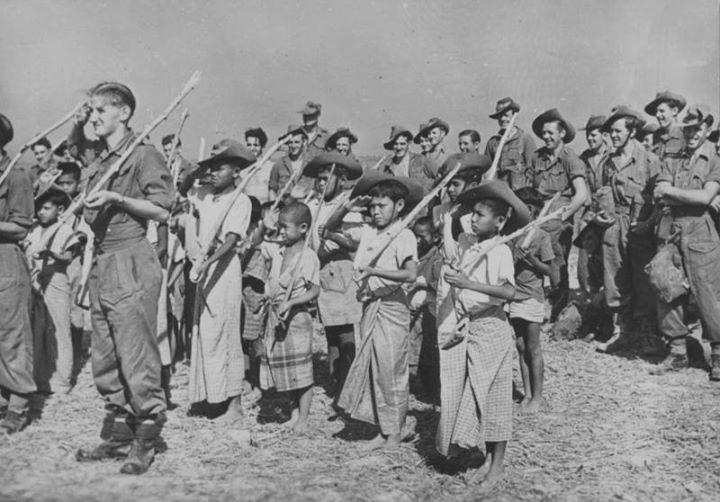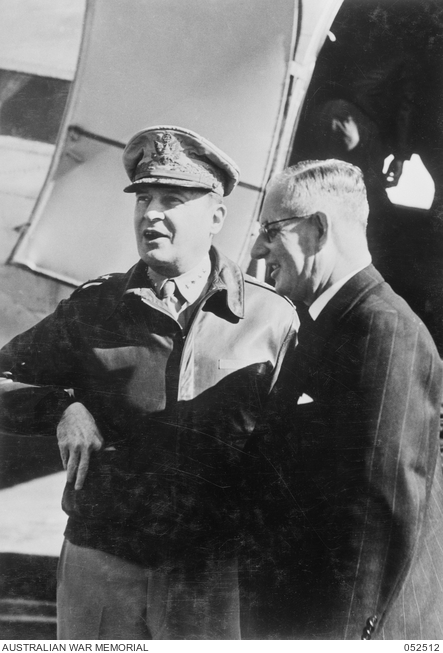

19 February 1942 - 22 February 1942
When Australia changed Burmese history
people John Curtin Winston Churchill
On 23 December 1941, the Japanese army began the aerial bombing of Rangoon, then crossed the border from Thailand by land, seizing Moulmein at the end of January. On 15 February, Singapore - Britain's "impregnable" fortress in the Far East - fell, and 80,000 Allied troops were captured. On 19 February, the Australian town of Darwin was bombed by the Japanese. By late February, the Japanese 15th Army was fast approaching Rangoon, defeating the 17th Indian Division, and crossing the Sittang River in strength on 23 February. The Allies had a single division in the Shan states and Rangoon was virtually unprotected.
At the same time, two Divisions of the Australian Imperial Force (AIF) - the Australian 6th and 7th Divisions - were sailing east after successful operations against the Germans in North Africa and Syria. Winston Churchill, with the support of President Roosevelt, ordered the lead 7th Division (under General A.S. "Tubby" Allen) with 15,000 men to Burma to urgently reinforce the defence of Rangoon. Over an exchange of angry cables from 19 to 22 February, Australian Prime Minister John Curtin refused, believing the troops might be needed to defend Australia itself. The British 7th Armoured Brigade (the "Desert Rats") arrived in Rangoon later in February but it was already too late - the Japanese took Pegu on 7 March, Rangoon was evacuated the same day.
The refusal of Churchill's order was a defining moment in Australian history. It was also a critical juncture in Burmese history. What would have happened if the 7th Division had landed in Rangoon and, especially, what if the Japanese had been successfully repelled? There would have been no Japanese occupation and the course of Burmese history would have been entirely different.
These photographs show Burmese children with Australian soldiers later in the war (several hundred Australians served in the Burma campaign over 1943-45), and Australian Prime Minister John Curtin welcoming American General Douglas MacArthur in 1943.